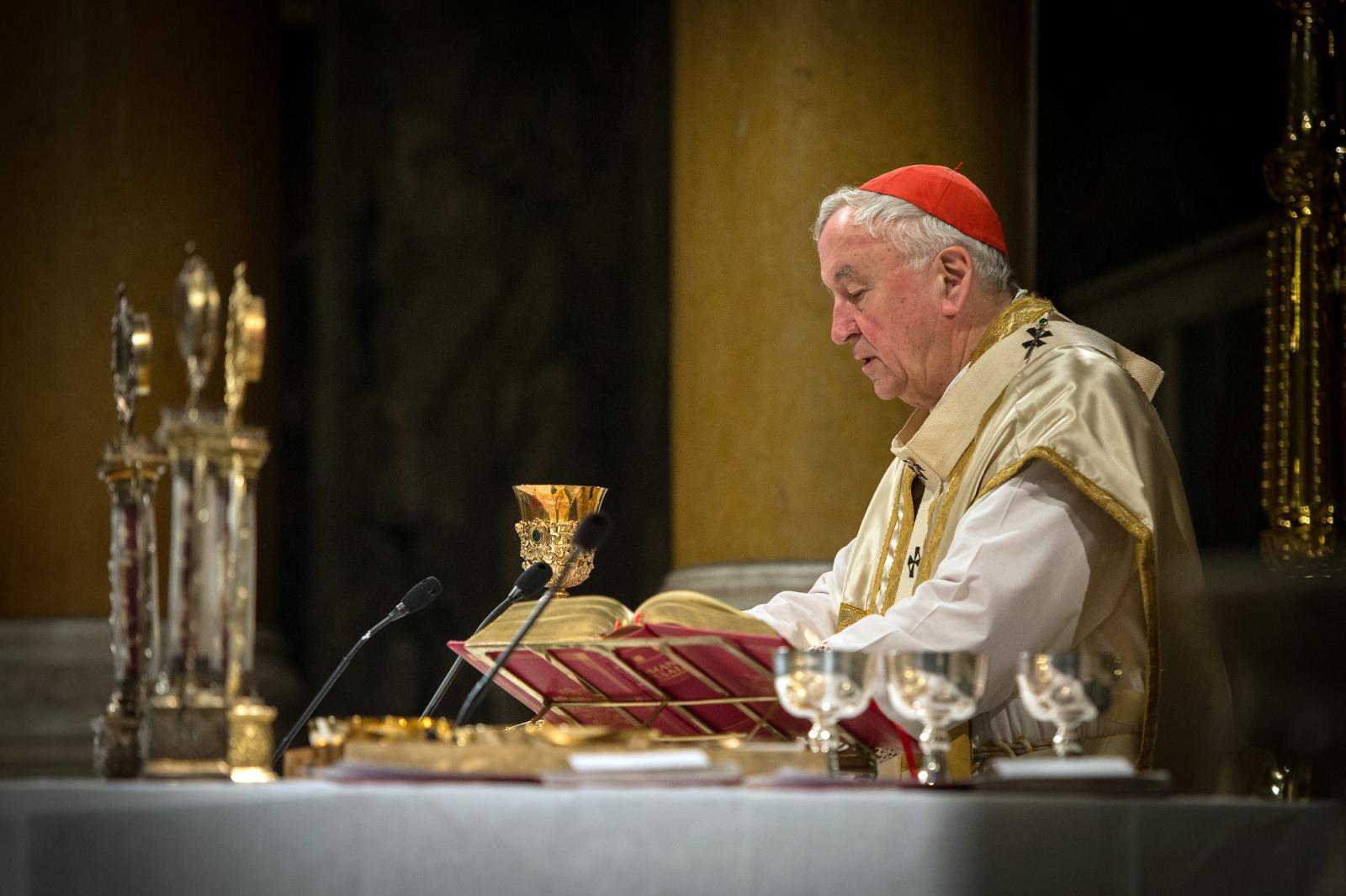Corpus Christi is the Feast of the Body and Blood of Christ, offered for the forgiveness of the sins of the world. It is also the Feast of the Body and Blood of Christ given as our food and drink for eternal life. There are many rich reflections in each of those dimensions of the Mystery of the Eucharist but I have been holding them together in my own.
We have, perhaps, lived with tensions between them: tensions between the Altar and the Table; between the Sacrifice and the shared Eucharistic meal. For me, these last months have brought these two aspects together, through celebrating Mass with very few others present (or, indeed, none) and then returning to the communal celebrations and the physical sharing of the Sacrament with the people of God.
The readings for this Feast have added to my reflection. The Letter to the Hebrews, for example, contemplates true religion, seeing ‘religion’ as our coming into the presence of God in order to ‘do our service to the living God’. Along with Exodus 24, the need for purification before entering into this covenant or communion with God is made clear. And the great gift of our faith is that this purification is achieved, once and for all, through the sacrifice of Christ. No longer bound by repeated outward blood offerings, we are made worthy of true religion through the blood offering of Christ made present and effective in the Sacrifice of the Mass.
These thoughts have become clearer to me during this time as I have appreciated more and more the importance of celebrating Mass for the sake of the world, for the forgiveness of the sins of the world. I have found myself approaching the altar with this precise intention in mind, whether a congregation was present or not. This act of priesthood is the best thing I can do in fulfilment of the sacred ministry entrusted to me. Of course, it is not the only thing I can do, but it is its foundation. Only through the blood of Christ, poured out for us, can we come into God’s presence in the purity which that presence demands. Only then can we truly carry the suffering, heartache and failures of the world into God’s presence, for God’s forgiveness and healing. We do so precisely, and in every sense of the words, ‘through Christ our Lord’.
Within the dynamic of the Mass itself, then, it is only the offering of this sacrifice which makes us fit to receive the elements of that sacrifice: our Holy Communion in the Body and Blood of Christ. The sacrifice and the communion are inseparable. The sacrifice of the Altar makes us worthy to be present at the Table.
This takes us to the heart of our salvation, the gift by which we live not only in the constant awareness of our own sinfulness but also rejoicing in our calling. It gives substance to the phrase of Oscar Wilde, quoted recently, that in this Church a saint always has a past and a sinner always has a future.
The Body and Blood of Jesus are both the Sacrifice for the forgiveness of our sins, unfolded in the Sacrament of Reconciliation, and the Eucharistic Meal, the means of our holiness. Today we hold them together.
And there is a third element to my reflections: this future. This same Body and Blood of the Lord are also the promise of our future glory. At a time when hope is more difficult to find or to cling to, this is an important perspective. Our joy lies in being ‘called to the Supper of the Lamb’, who indeed ‘takes away the sins of the world’. In these times of such uncertainty, we have a sure hope to which we look forward. Yes, the journey is long and hazardous, but the food is secure and the destiny assured, through him, with him, and in him.
